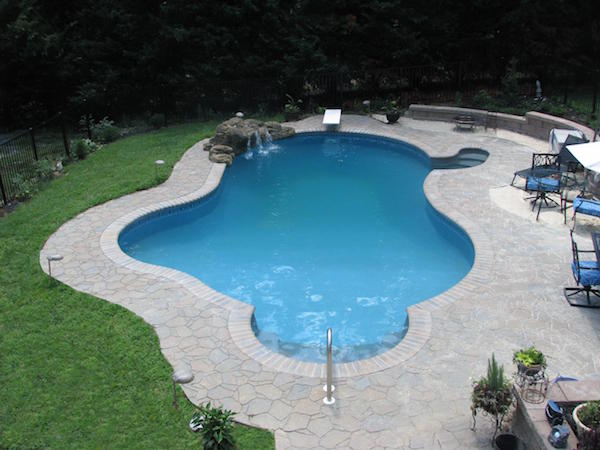
When winter comes around most pool owners tend to cover up their investments and forget about them until next summer rolls around. However, the pool season can be extended, or possibly even enjoyed year around, if owners would simply supply their systems with a heater. Swimming pool heaters are able to maintain a constant temperature throughout the year so that you can relax with your family and loved ones in warm water, even in the winter.
Of course there are additional costs in maintaining the temperature of your pool all year, but they are not as steep as you might think. Plus, these heaters come in a variety of sizes and forms to better match your specific budget and needs. And you may have questions like: How much does it cost to heat a pool?
Which Type is Right?
Swimming pool heaters all function in different ways, each with their own lists of pros and cons. Here are three major types to consider:
Electric Heat Pump
Don’t let the name fool you: though these heaters use electricity, they are actually a form of solar heat. When the air outside the pool is above 45 degrees, these heaters take the warmth from the outside air and electrically convert it to the water through a compressor. These are great for all-year use because despite the weather, they will heat the pool to between 80-90 degrees. They may be a bit pricier depending on the quality of the unit, but they have a low operation cost due to their efficiency and can last up to 10 years without replacement as long as they are periodically maintained by HVAC professionals.
Gas Pool Heater
These heaters are fueled by natural gas and are great for quick heating. Due to gas prices, they are a bit expensive to operate, but since they burn so quickly, your pool will heat up in no time. Their initial cost is actually quite reasonable and their efficiency is quite respectable, however they add to your utility bills if you run it year-round (unless you use propane, which is slightly cheaper).
Ready to start your pool heater?
Find ProsSolar Pool Heaters
Since most pools are built in climates that are sunny and warm all the time, solar pool heaters may be the way to go. They many not be as powerful as heat pumps (the water won’t get as warm), but they are much more efficient in their heating because there is virtually no cost of operation. Solar pool heaters simply extract the warmth from the daytime air, and the pre-existing pool pump re-circulates the heated water back to the pool. The solar panels are normally found on the roofs of the house or building and can take up a lot of area because of their size (proper sizing, depending upon the proportion of your pool, is crucial for efficiency), but they are reasonably priced and can last up to 20 years with very little maintenance. Of course the one big drawback is that during bad weather (without sun) the swimming pool heater will be temporarily out of use, but thunderstorms are probably not the best time to go for a dip anyway.
It All Depends
Once you decide on the best heat pump or heater for your pool, make sure to consult a professional for additional information and installation. Since each pool comes with its own unique shapes, sizes, and capabilities, the selection of a heater shouldn’t be hasty. Everything hinges on costs, budgets, location of the pool, regional climate, location of the roof (for solar heaters), and the length of the swimming season that you desire. Plus, each pool heater (gas, electric, solar) has its own specifications when it comes to set-up, so always leave it up to the professionals for safe and efficient installation.
 Swimming Pool Glossary
Swimming Pool Glossary  Pros, Cons & Costs: Fiberglass Pools
Pros, Cons & Costs: Fiberglass Pools  Indoor Hot Tub: A Steamy Situation
Indoor Hot Tub: A Steamy Situation  Why Everybody Should Have a Pool Cleaner
Why Everybody Should Have a Pool Cleaner  Quick Tips for a Summer-Ready Pool
Quick Tips for a Summer-Ready Pool 

Are You Familiar With This Topic? Share Your Experience.